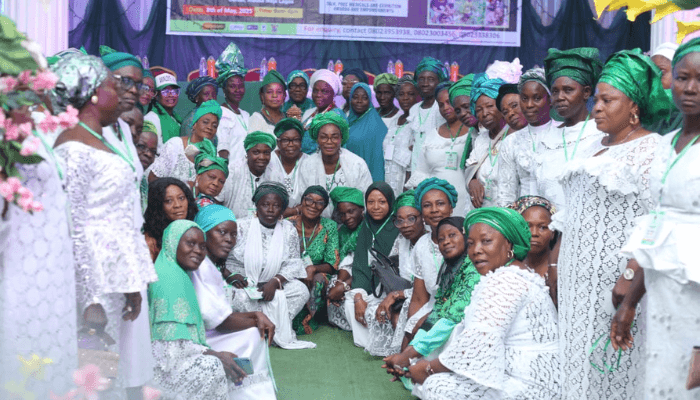Women farmers in Africa’s most populous country have been urged to play more prominent role in driving agro-processing to unlock new opportunities and boost their income.
For a country that exports about 80 percent of its raw food produce, adopting an agro-processing approach will ensure that farmers livelihoods are positively impacted.
Gloria Elemo, former director-general of the Federal Institute of Industrial Research (FIIRO), Oshodi, at the convening of All Farmers Association of Nigeria (AFAN) in Lagos, held recently, emphasised the need for value-added agriculture through sustainable processing of raw agricultural commodities.
“For us to cut down on food waste and win our fight against poverty, we need to begin to look at food processing. We need to begin to process what we produce on our farms,” she said.
Data has shown that women account for over 50 percent of Nigeria’s farming population, confirming the important role they play in driving food security.
According to the National Bureau of Statistics (NBS), women farmers are the largest growers of fruits and nuts, and agricultural households championed by women have been reported to be more food secure.
Governor Babajide Sanwo-Olu, who was represented by Abisola Olusanya, commissioner for Agriculture and Food Systems, said Lagos has benefited from the impact of women farmers.
“Women have important personalities and have helped the development of the country,” Sanwo-Olu said.
“We have found that they are critical to Nigeria’s agricultural future; they make up over half of the small and medium farm population, and they play a pivotal role across the country.”
The Governor stressed that women are the backbone of agriculture in Nigeria, playing significant roles in ensuring that households have food on the table.
He noted that, “From production, to processing, to distribution, to breeding, women are ensuring food security, driving economic growth, and uplifting families and communities.”
Sanwo-Olu said despite facing persistent challenges, such as limited access to land, credit and essential resources, their resilience and expertise not only sustain the nation’s food supply, but also contribute significantly to poverty reduction and the well-being of the Nigerian society.
He noted that Lagos State, through its five-year development roadmap, is committed to achieving a healthy and sustainable subsistence economy, with targeted investments and initiatives that empower farmers, especially female farmers who are “the backbone of our food systems.”
Similarly, Ibijoke Sanwo-Olu, wife of the Lagos State governor, echoed the voice of Governor Sanwo-Olu, saying that the state acknowledges that agriculture is the backbone of the country, capable of driving economic and social empowerment, hence why it is involved in empowerment trainings for farmers, especially for women farmers.
Challenges of women farmers
Shakin Agbayewa, deputy president of the Lagos chapter of AFAN, said insecurity, lack of access to credit and equipment are major challenges that farmers face today.
“We know that the federal government is churning out credit loans and seeds, but they are not getting to the right people. The farmers who need the aid are not getting it,” he said.
“We cannot go to the farms if they are not safe, therefore, we are appealing to the government at all levels to do something about this.”
Femi Oke, president of the Lagos chapter of AFAN, noted that farmers were finding it difficult to access loans, lands, and training. Therefore, he called for more support for farmers from both the private and government sectors.
A report by the Food and Agriculture Organisation (FAO) shows that only a small portion of development funding for food and farming initiatives accounts for the prominent role of women and their gender-related barriers.

